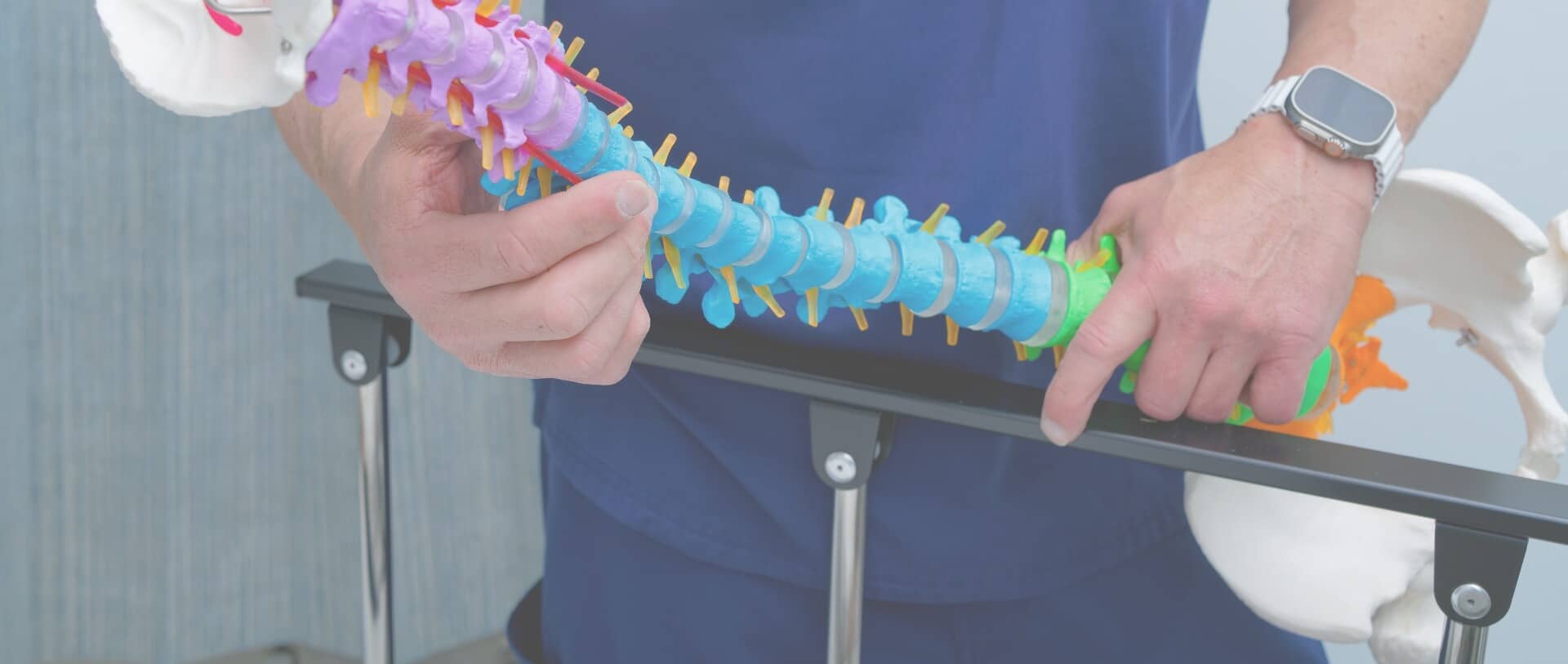
CONDITIONS
Kyphosis
Imagine your spine as a tower of building blocks. Sometimes, these blocks can stack a bit differently, causing the upper back to curve more than usual. This condition is called kyphosis. Picture a gentle hunch in the upper back, making the shoulders round forward. It can happen to anyone, but it’s more common as we grow older. You can successfully treat this spinal abnormality by relying on the expertise of a spine surgeon like Dr. Jamie Gottlieb. Schedule an appointment for an accurate diagnosis.
What is Kyphosis?
Kyphosis can make your back look like a curve instead of a straight line. It is a spine condition where the upper back is curved or rounded, making it appear hunched or humped. If you have a “hunchback,” kyphosis may be responsible.
The spine already has gentle curves to help with balance and movement, but with kyphosis, the curve is deeper than normal. This can happen for various reasons, including poor posture, certain medical conditions, or spine problems. While everyone’s spine has curves, too much curvature can lead to issues with appearance, mobility, and even breathing difficulties.
What Causes Kyphosis?
An experienced spine surgeon like Dr. Gottlieb will be able to identify the cause of your kyphosis. These causes may include:
- Poor posture: Slouching or hunching can lead to a deformed spine over time
- Degenerative disc disease: Conditions like arthritis or degenerative disc disease can wear down the discs and bones of the spine, resulting in kyphosis.
- Osteoporosis: Weakening of the bones due to this condition can contribute to the development of kyphosis.
- Congenital conditions: Some have had this spine deformity since birth, or have another medical condition that has made them more prone to developing spinal deformities.
- Scheuermann’s disease: This is a condition that affects children and adolescents, causing the vertebrae to develop into a wedge shape, leading to excessive kyphosis.
- Spine fractures: If spine fractures are not treated properly, they may heal poorly and lead to spinal deformity.
- Tumors and infections: In some cases, tumors or infections in the spine can affect the normal growth and structure of the vertebrae.
- Muscle weakness or imbalance: Weak muscles may not effectively hold the spine upright, potentially leading to kyphosis.
It’s important to consult a spine specialist for a thorough evaluation if you suspect kyphosis.
What are the Signs and Symptoms of Kyphosis?
Kyphosis can manifest itself with various signs and symptoms; in the early stages of kyphosis, you may not experience any symptoms at all. Symptoms of kyphosis may include:
- A visible hump or rounded back
- Back pain
- Stiffness
- Fatigue
- Breathing difficulties
- Digestive issues
- Pinched nerve
- Changes in gait
Kyphosis may cause self-esteem issues due to visible deformity, affecting one’s mental and emotional health. These psychological effects should not be overlooked.
How is Kyphosis Treated?
Before recommending surgery for kyphosis, your doctor will consider several factors, including:
- Degree of curvature
- Severity of symptoms
- Age
- Overall health
For mild cases, non-surgical treatment for kyphosis may suffice to manage symptoms and keep the curve from progressing. Common approaches to this type of kyphosis treatment may include:
- Observation and monitoring to track the progression of the condition
- Physical therapy, which helps to improve posture, strengthen muscles, and increase flexibility
- Pain management
- Bracing, which may be sufficient for children and adolescents who are still growing
- Medications to manage pain or treat underlying conditions like osteoporosis
- Assistive devices like an ergonomic chair or pillow to maintain proper posture
- Lifestyle changes, like regular exercise, maintaining a healthy weight, and avoiding activities that may strain the back
Will I Need Kyphosis Surgery?
Severe cases of kyphosis or those causing neurological issues may require surgery to correct the curvature. Additional indications for surgery include:
- Rapid progression, or has already reached a severe stage
- Little to no results from conservative treatment
- Pain or discomfort that interferes with your daily life
- Cosmetic concerns
The choice of approach to kyphosis spinal surgery depends on the cause and severity of your condition, and the surgeon performing the procedure, but a spinal fusion is the standard solution.
How is a Spinal Fusion Performed?
Spinal fusion is a reconstructive surgery done to reduce spinal curvature, halt its progression, and alleviate back pain. During the procedure, affected vertebrae are fused, mimicking a single bone. Metal screws and rods are used to align the vertebrae, with the goal being to achieve at least a 50% improvement in the spinal curve.
Cervical kyphosis surgery also aims to improve mobility; however, if multiple spinal segments require fusion, certain movements like bending or twisting may be limited. Your surgeon will pay close attention when executing the procedure to be sure any limited movements work with a patient’s specific activity level to guard against difficulty going forward.

Top Quality Care at Gottlieb Spine
Dr. Jamie Gottlieb and his dedicated team of spine specialists can guide you toward a healthier spine with kyphosis surgery. Your condition should not affect your quality of life. Schedule an appointment at Gottlieb Spine to find out if you are eligible for surgery.
SCHEDULE A CONSULTATION